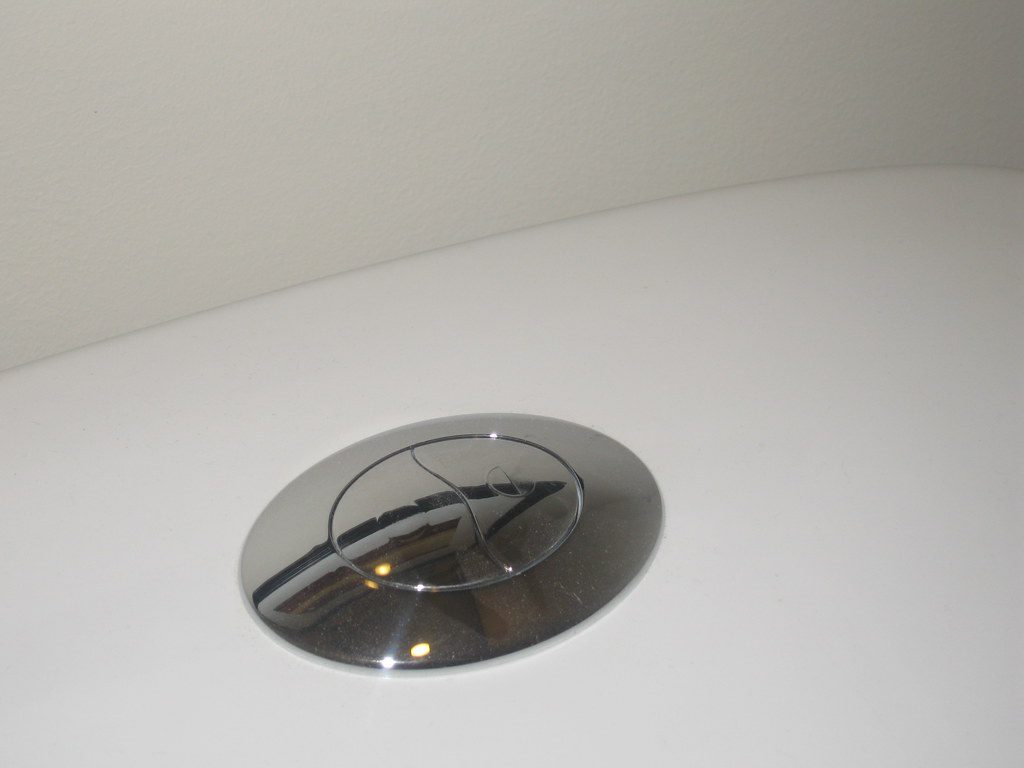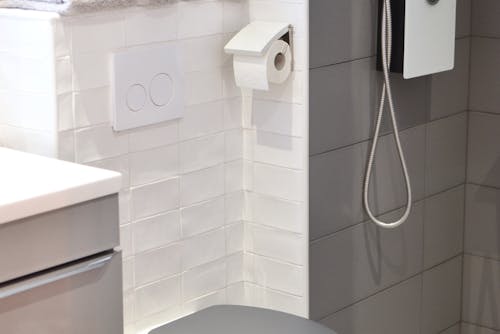So, my dudes, we know it may seem like an off-road track but when it comes to saving our resources and environment, we must understand the working nature of simple appliances at our home. Now, most of us don’t understand why there are two buttons on our toilet seat and what’s it called. Ever wondered if there was a way to save water when using the restroom? Yes, indeed! We call it a dual-flush toilet.
Dual flush toilets are unique toilets that contribute to environmental protection and water conservation. Dual flush toilets are becoming more and more popular as an environmentally friendly home solution as water conservation becomes more and more important. A dual flush toilet utilizes less water by flushing both liquid and solid waste using two buttons.
What is a Dual Flush Toilet

A toilet that has two separate flush options is called a dual flush toilet. There are two types of waste to flush: solid waste (poop) and liquid waste (pee). In this way, you avoid using more water than is necessary. Choosing the appropriate flush can help you save a significant amount of water each day. A dual-flush toilet shares certain exterior similarities with a standard toilet, but it also offers a few special advantages.
Difference Between Normal Toilet and Dual Flush Toilet
Normal Toilet
Usually, a toilet has one handle or button. Regardless of whether you are flushing it for liquid or solid waste, it always needs the same quantity of water. This indicates that even when you don’t need a lot of water, it can be used a lot. Standard toilets are not very effective at conserving water.
Dual Flush Toilet
There are two levers or buttons on a dual flush toilet. For liquid waste, one button uses less water than the other, for solid waste, the other button uses more water. In this manner, you conserve water by using exactly what you need. Compared to standard toilets, dual flush toilets are more economical and ecologically beneficial.
Why there are two buttons on Dual Flush Toilet Seat
Small button for liquid waste
This button often uses about one gallon of water. You don’t need a lot of water to clean the bowl, which makes it ideal for flushing liquid waste.
Large button for solid waste
About 1.6 gallons of water is used by pressing this button. It is used to flush solid waste, which requires more water to guarantee that all of the trash is completely removed.
With two buttons, you may select the appropriate water volume for every flush. This indicates that when you simply require a light flush for liquid waste, you are not wasting water. This can save a lot of water over time, which is beneficial for the environment and your wallet as well.
Importance of Dual Flush Toilet

The flushing mechanism of a dual flush toilet controls the amount of water used to flush either solid or liquid waste. You have the option to purchase the twin flush systems pre-installed or install them yourself. Using a toilet handle, the toilet syphon the original dual flush valve is operated. The other is a push-button or lever-handle dual flush drop valve. Liquid waste flushes with far less water since it requires far less assistance to escape the toilet bowl. About twice as much water is needed for a solid waste flush as for a liquid flush to guarantee that the contents go down the drain.
How to use
It’s simple and easy, we just need to understand the mechanism
For Luiquid Waste
Press the smaller button or use the lever for a light flush. This uses less water, just enough to get rid of the liquid waste.
For Solid Waste
Press the larger button or use the lever for a full flush. This uses more water to make sure all the solid waste is flushed away.
ALSO READ
What happens when you listen to too much music
Benefits of using dual flush toilet

Saving money
Using less water means lower water bills. This is because you are not using more water than you need. This can save your family a lot of money over time. Imagine the amount of money you could save on water bills and all the fun things you could do.
Helping the environment
You may contribute to environmental protection by saving water. Using a dual flush toilet is an easy method to make a huge difference, and every little bit helps. Water saving helps guarantee that everyone, including plants and animals, has access to enough clean water.
Conclusion
Toilets with dual buttons or levers are an easy and clever method to save water usage and protect the environment. Through appropriate use of water for various waste types, we can preserve this valuable resource and maintain the health of our world. The next time you’re in the restroom, keep in mind that switching to a dual-flush toilet is a small but significant change! Using a dual-flush toilet is one way you can contribute to protecting our planet and conserving water.
FAQs
Are dual-flush toilets better?
Dual flush toilets can save up to 67 percent of the water you may have used, even when compared to toilets that follow the 1.6 gallons per flush normally, according to studies.
Which type of toilet flush is best?
The flushing performance of toilets with pressure-assisted flushing systems is often better than that of toilets with gravity-fed systems. Gravity-fed toilets rely on gravity to push waste through the trapway, whereas pressure-assisted toilets use compressed air to produce a more powerful flush.
Which toilet style is healthy?
Indian (squat) type toilets, the pooping position offers a better angle that facilitates bowel movement without applying excessive pressure. But for the elderly, people with mobility issues, and people with weak knees or hips, using an Indian toilet might be challenging.

I’m Jason Gill, founder of propeoplemag.com. I’ve graduated in Aviation Management and Avionics Engineering from Superior University, Lahore. I’m certified in WordPress Website Creation and Content Management. I’m a passionate blogger and have seven years of experience in content writing and web development. With a dynamic blend of expertise in web development, blogging, and content creation, I have expertise in dispatch and customer services where I’ve worked with top-tier USA, UK and Canadian based companies located in Pakistan. I’ve also worked as a Student Brand Ambassador for the Cultural Exchange Program at Superior Univeristy and have visited twice for 6 months in Istanbul, Turkey, and Doha, Qatar.

